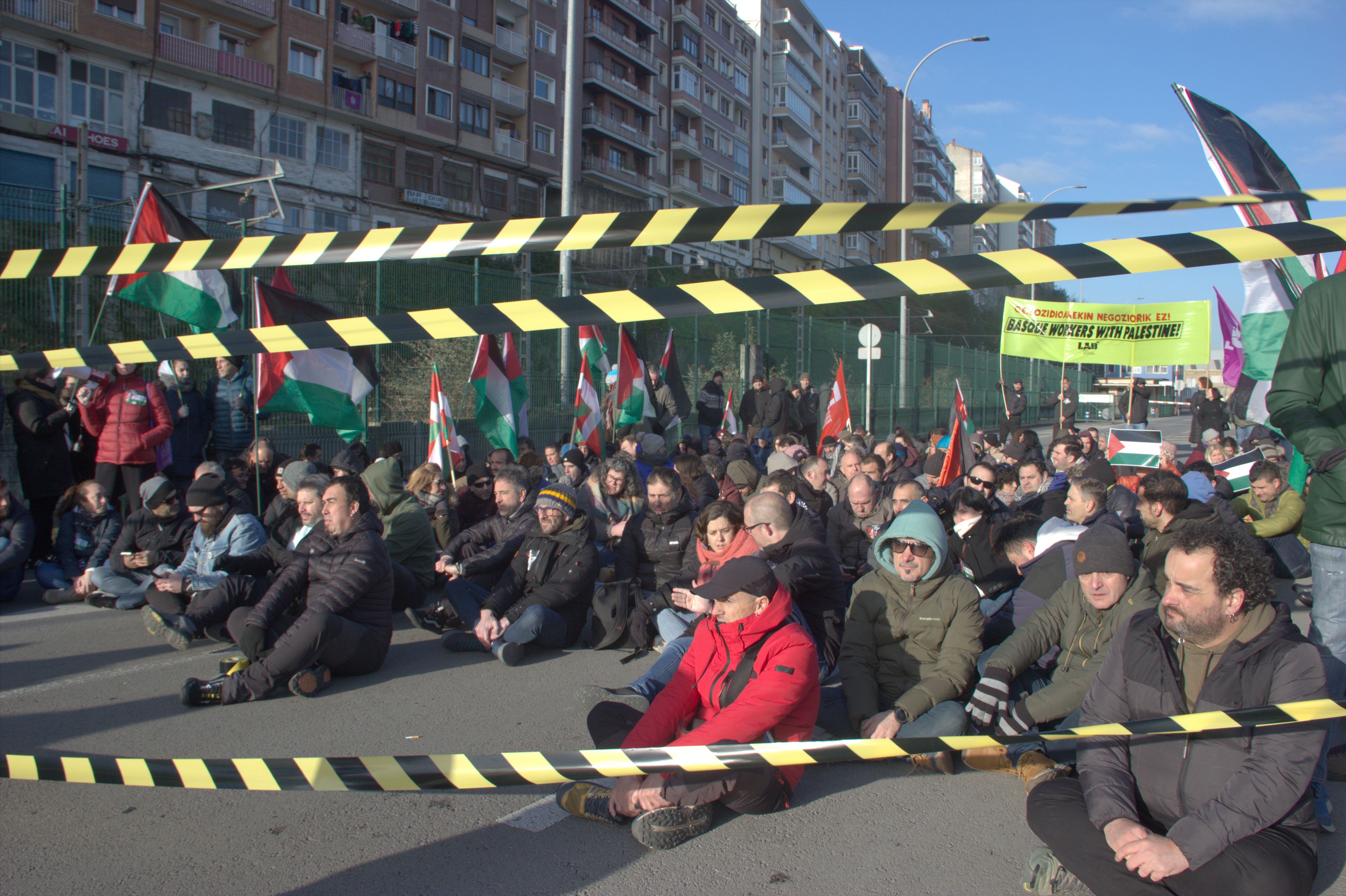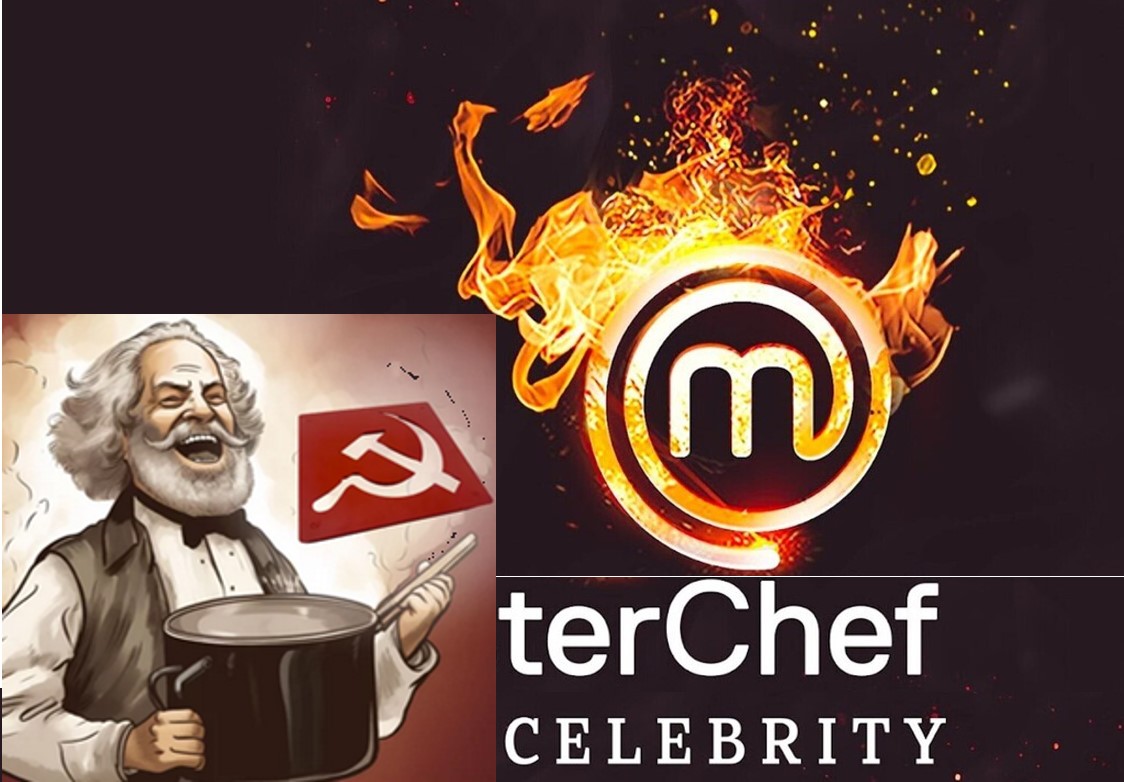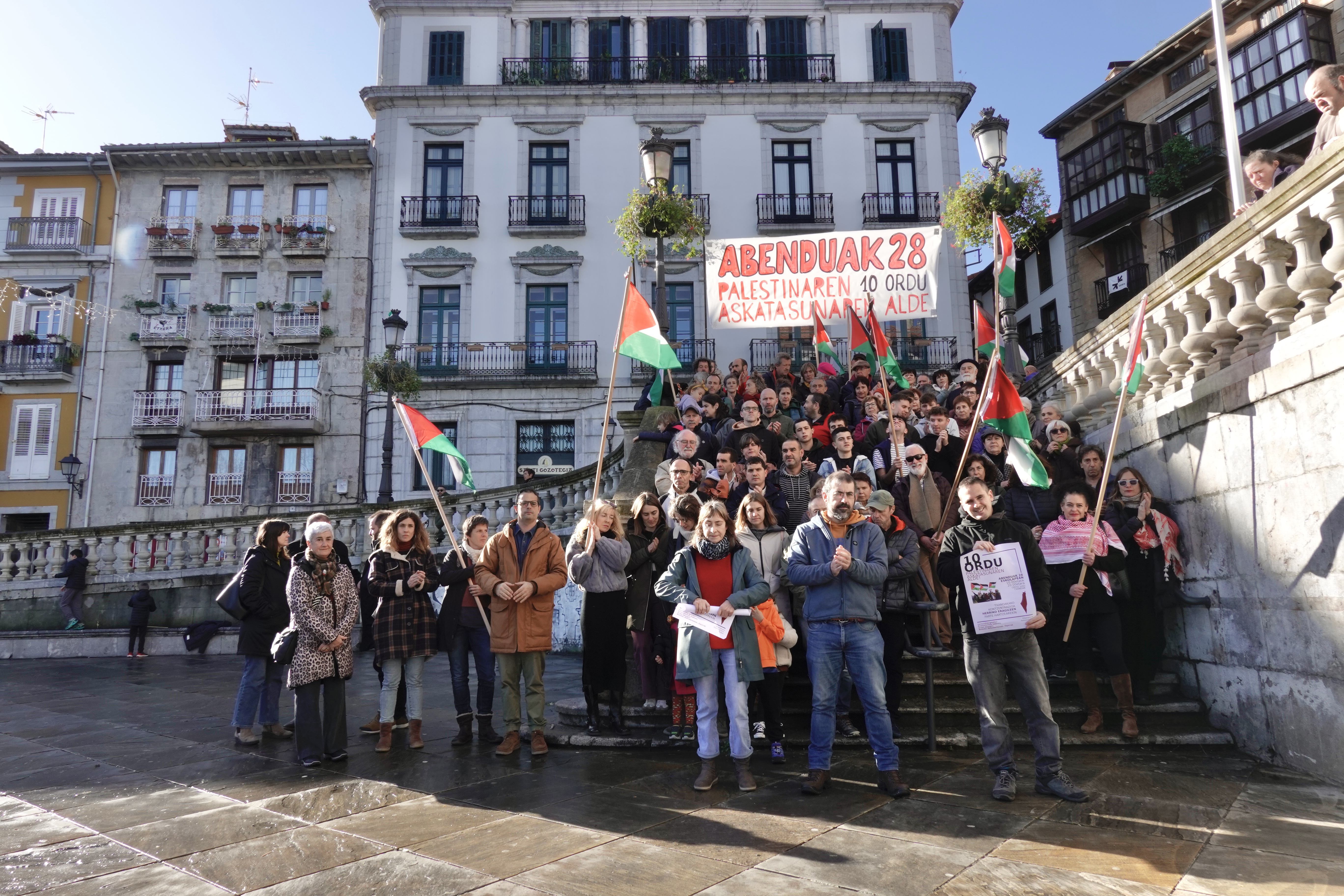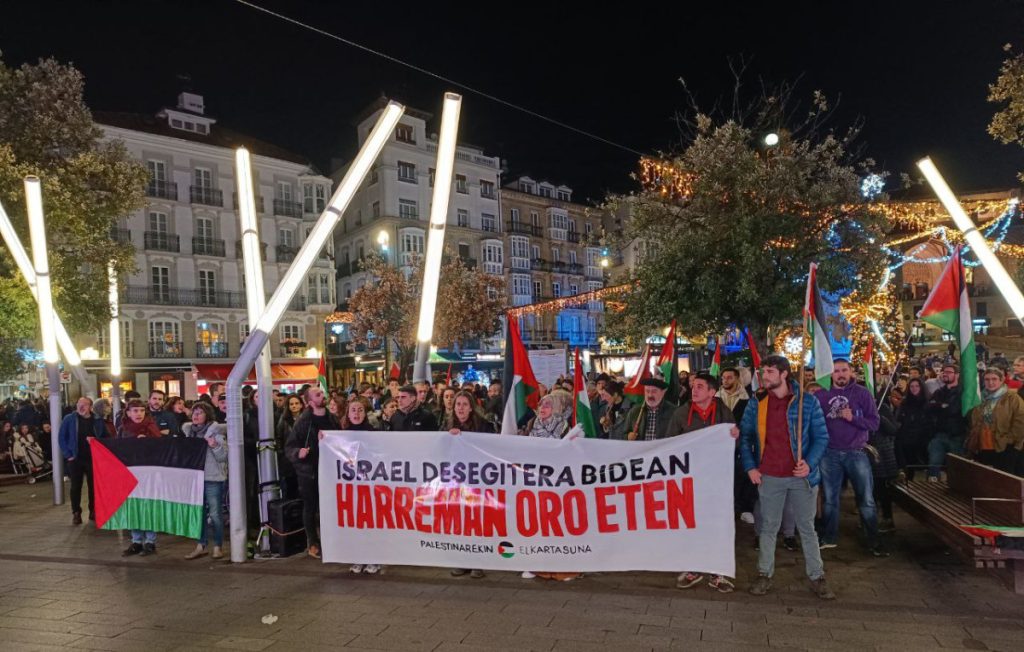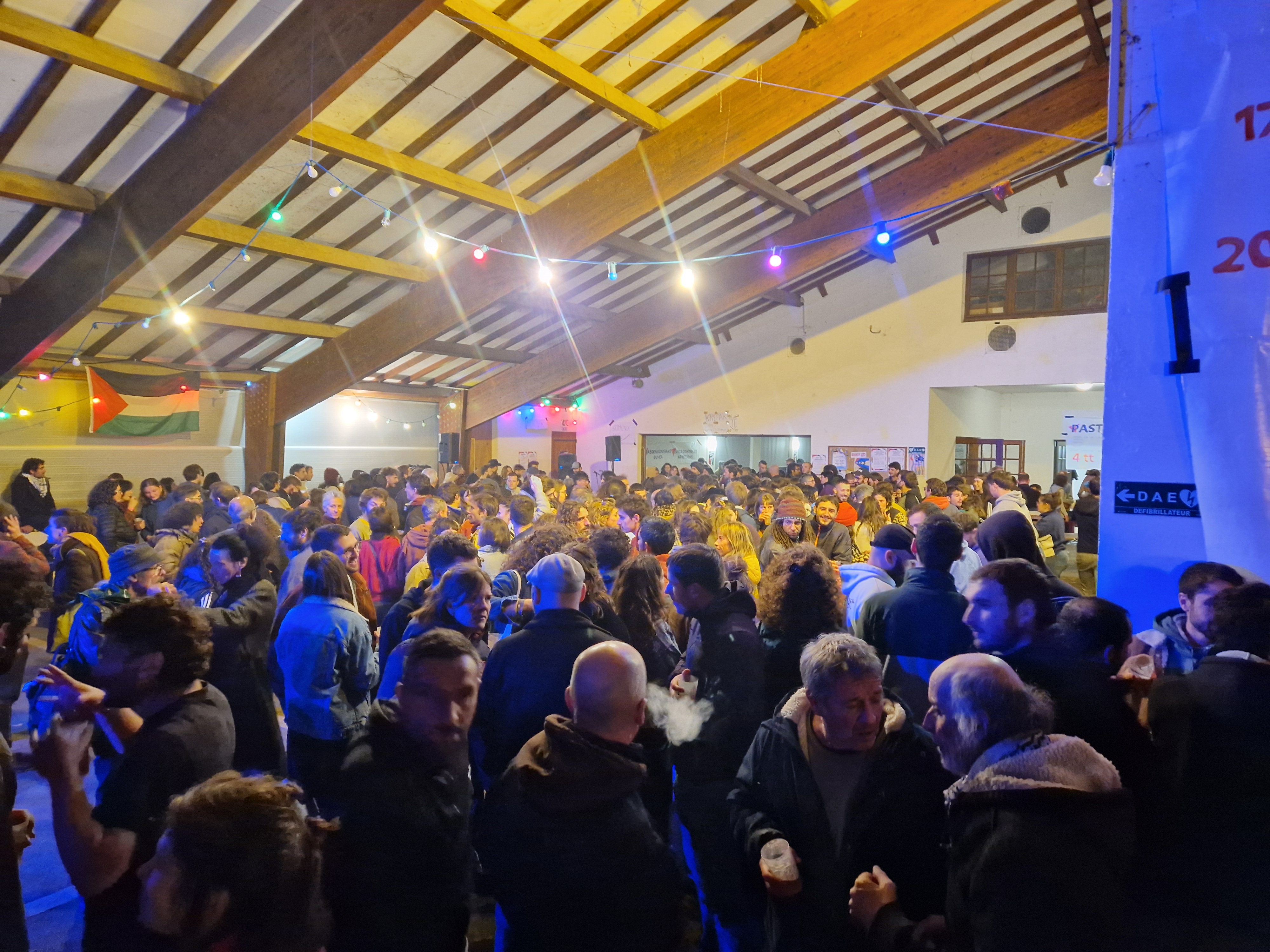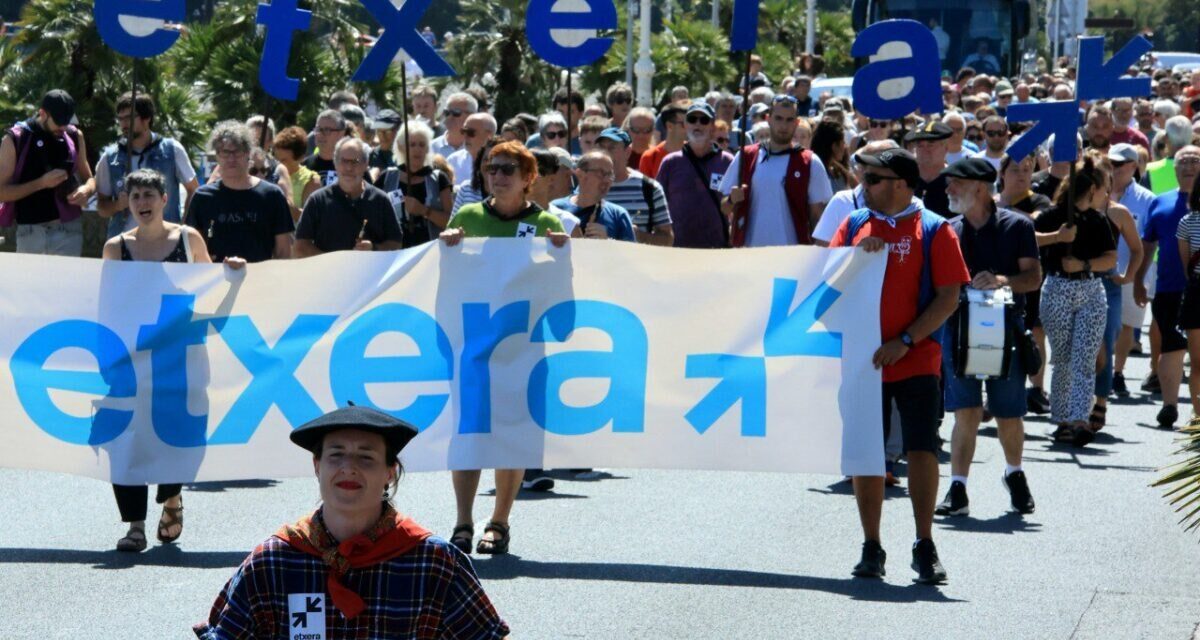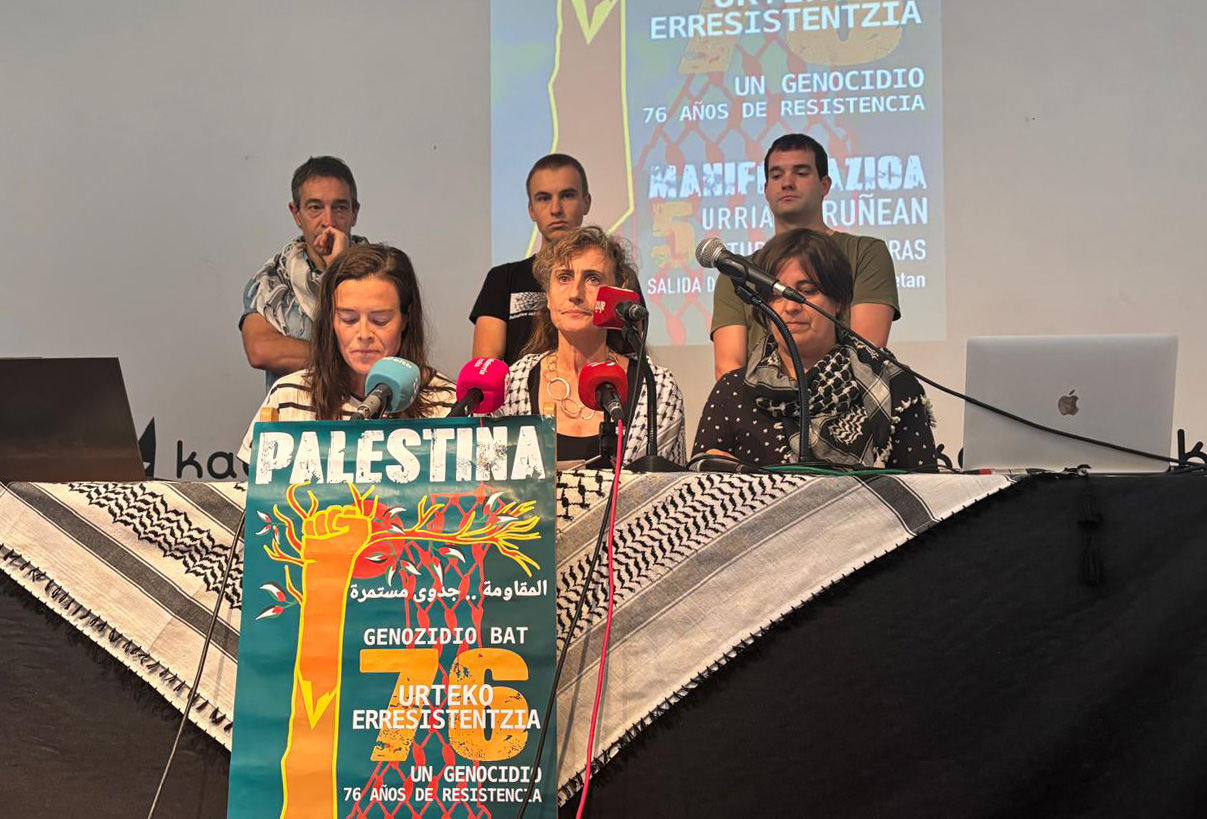"The war in El Salvador humanized me."
- He was in the war in El Salvador, next to the guerrillas. He experienced first-hand the pain, pain, death, fear and fear that war brings. There is no doubt, however, that it has been worth it, as it believes that the Salvadorian has earned dignity. You hear a noise of war when you hear Miren Odriozola's voice.
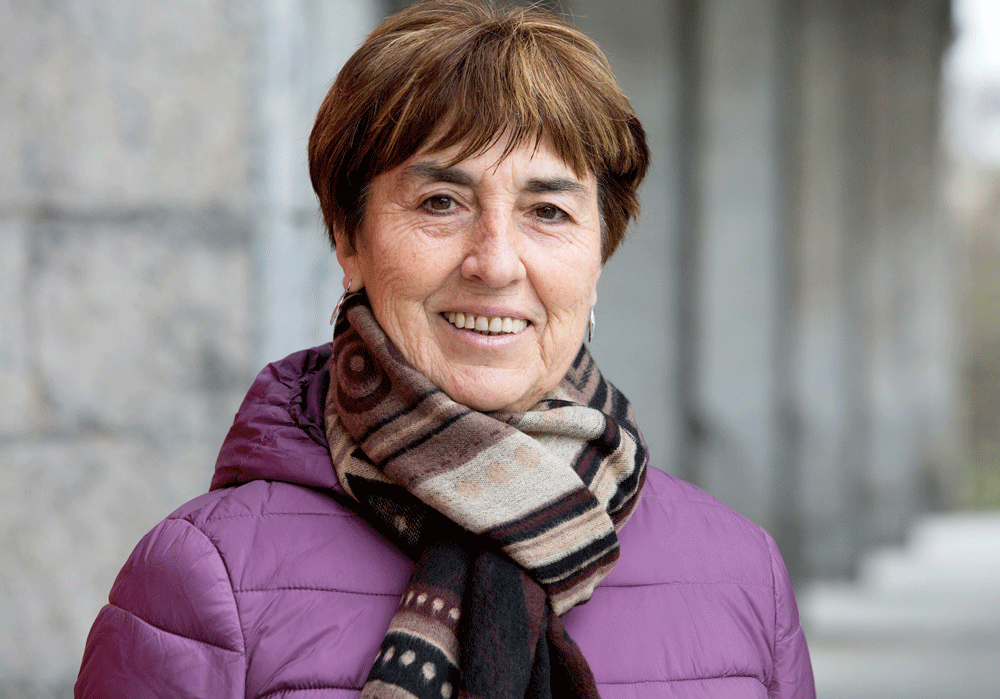
El Salvadorren gerra urteetan ibilitakoa da, baina harako borroka baino lehen Bilbo aldean zaildu zen, lantegietako eta emakumeen borrokaren erdian. Francoren garaiko kartzelak ezagutu zituen, Basauri, Carabanchel, Alcalá Henares… El Salvadorreko gerra hartan parte hartu baino lehen. Internazionalista, borrokalaria, barrua hustu du Leire Ibargurenen Laura esaten zioten Miren Odriozolaren borrokak liburu guztizko gomendagarrian (Txalaparta, 2016). Konta litezkeenak kontatu ditu, dena ez dagoela kontatzerik konbentziturik, baina elkarrizketa batean sar litezkeenak baino askoz gauza gehiago kontatuz.
In 1983, you were also fighting before the war in El Salvador.
Before I went there I was at the feminist assemblies in Bilbao, I met the case of the women of Basauri, the fight for abortion, and so when I went to El Salvador, I brought that awareness. But there, of course, the first thing was war.
You knew it was war there.
Yeah, I knew I was going to war, and I got a lot of laps in my head. If you go to war, you have to believe they'll kill you there. With the danger, there is a great chance of death. You never get to accept it, but somehow you have to eat it, otherwise you can't take it away. I didn't know what the war was about, and slowly I learned.
Little by little…
I remember, as I leave, in the camp, suddenly people running around, hiding. “What’s going on here?” I wondered. The aircraft was then launched. When he threw the bomb, I threw myself to the ground. The locals had their ear sensitized. When the planes were leaving San Salvador, they heard their noise. I would also learn, but that time not, I stayed there. When they came out of the hiding place, they said: “You’re a brave man!” and I: “He’s not balient, he’s an ignorant!” So I learned, and like that, a lot of things. The first week we slept anywhere, with a plastic on the ground, with bone pains. I got used to it.
What is war?
How would I define war? We got up earlier in the morning, before the dawn, if not the planes were coming to bomb us. We had to get dressed and be prepared to go to the race. Every day we carry out training with our weapons, training of squads – logistics, health… –, task sharing and each one of their tasks. We, for example, began to heal the wounded, to give ourselves breakfasts, to distribute medicines, to clean the sick... In the afternoon, we gave literacy classes, or health classes [nursing], or political courses, sexuality... Since most doctors are internationalists, we organized different courses. We did everything, as we could, and when we were left, because sometimes we had to move from one side to the other. What is war… War is very hard. We would wake up in the morning, but we couldn't tell if at night we would lie down, we would be alive. However, in the Chalateng camps I have not slept so much in my life.
Don't we sleep so much in the war camps?
No. It was six and a half o'clock in the afternoon. I couldn't turn on any light. Sometimes, if we were at home, we turned on a candle to read or to prepare something. If not, what are you going to do, if you don't sleep? That's how it went at first, in the first few years. Then we had walkie-talkies and in the evening we received calls informing of the soldiers' movements, as if the camp had to move somewhere else.

You say you could not know if they were going to survive at night. How many deaths do you have in Chalatenango?
Many, most of the people there. Soldiers killed many people. Among the Salvadorans were some who emigrated to the United States or took refuge in the Honduran refugee camps, and some remained there, which the Army regarded as guerrilla collaborators, even if they were unarmed. But soldiers killed them the same, wreaked havoc among the population. Those who were wounded were coming to us, for there was no other company there. When I went to El Salvador in 1983, the guerrillas controlled the area of Chalatenango. The planes were coming up, but the soldiers didn't dare to go in. The entry occurred in August 1984 and the massacre occurred among the population.
The army killed the majority of its inhabitants. More than one internationalist also left his life there: In the book we have read Begoña, Alba, Blanca and other names. One of these names is the one that was made known in the Basque Country: Pakito Arriaran.
We met in Venezuela and fell in love. Pakistan was a committed and integral militant, a very mature person. He was very critical, not only with others, but with himself, in the best sense of the word. You grew up next to him. We're also debating feminism. I had a special instinct.
You've told Leire Ibarguren a lot in the book. Among them, the death of Pakistan.
The guerrillas took a people, including Pakistan. The army threw on him with fury, with his plane and his rifle, and a bullet pierced his leg. At that time the guerrillas didn't have many medications, and after the army assault, Pakistan had to flee, unable to heal the gunshot wound, until his leg was gangrenous. It had to be cut. He learned to walk with crutches, put himself and killed him in another fight, as you have read in the book.
Two years later he came to Euskal Herria, gave a new son to his family. You saw an unimagined Basque Country.
I got here and picked up the corner! I had changed, but the people here had also changed while I was there. Before I left, I lived in Bilbao, and in my environment, girls and boys, we lived in rented houses. When I came here, everyone was buying the house, or the car, and they were talking about the places that had been on vacation… “But what society is this?” I wondered. I felt a desire to take the plane again and return to El Salvador.
“Before the war the person had no dignity in El Salvador”
But you weren't at the right time.
No, this is my people, and I wanted to know what was going on. I stayed for a month and then returned to El Salvador. For the second time I came in 1989, but I didn't do it for a month. I saw that society had completely changed, totally individualistic, pure materialistic people. I didn't have a car, I said I didn't need it, and here they laughed at me, and also my friends. “Don’t you have to buy a car?” “Buy a car? I don’t even have money to pay for gasoline!” For six or ten years, I saw society completely changed. But I told her that I had changed a lot there myself. Also.
This is modified, that is also changed…
During the war in El Salvador we lived in a harsh situation, but among us there was a lot of will to help us, a lot of friendship, we shared everything among all… In El Salvador I knew a way of life that I have never known, in times of war. I believe that the same situation forced us to do so. People were very happy, even though they were dead and we were crying. But what happiest people! Then, when the war was over, I came here, I did here a year and a half, I came back there, and there I also saw the changed people: sad, sad people. “But what happened here?” was my question, and “We haven’t achieved what we wanted!” they told me. They wanted power, they didn't, but they got some things. I remembered being asked: “And you, Laura, what do you say? Something we have achieved, something we have achieved, but we are as poor as before, and in power we still have them.” It was the right who sent it. Parties and unions were legal, but people lived in misery, in that sense things didn't change much. They asked me. “Once we have achieved what we have achieved, would you return? Seeing how many people have died, how much we have suffered… Would you return?”

And your answer?
“Yes, it would certainly come. I have no doubt!” “What, then?” they and I: “We have achieved the dignity of the person!” Before the war, the person had no dignity in El Salvador. There were soldiers or death squads coming, they picked people up, they took them to the edge of the road, they shot and nothing happened. I said: “Things like this are going to happen today too, but we have opened a window to continue working and we have achieved some things.” Now we have another problem, the Maras [the juvenile armed gangs], the Salvadorans, who in times of war went to the United States and then returned. They have weapons and they only lead to threat, theft and murder. The situation is very bad, but in the whole region the situation is bad. El Salvador is bad, Guatemala is worse, Honduras has nothing to say… Nicaragua is better.
Without internationalists, was the war in El Salvador going to continue?
Yes, it would thrive, but otherwise. The internationalists made a great contribution to health, as there were many doctors, surgeons and assistants. In another order of things, some citizens consulted on how to bring war, such as Chileans, for example. Without the internationalists, the guerrillas would move forward, but with less material and worse.
Was it worth it?
Yes, no doubt! In eighteen years, the Frente managed to win the elections [Frente de Liberación Farabundo Martí]. That was crazy to me. Those who are now in power, at the head of the Presidency, were guerrillas. And this will come here, I'm hopeful.
After so many years, what has changed you in El Salvador?
Even if it sounds like a lie, I think the war in El Salvador has humanized me a lot.
Humanize wars?
When I was a young man, I struggled here, I was angry, for example, at the police. There, on the other hand, it seemed to me that the soldiers were simply poor – some at least – and I asked: “Why are they there and we here, being all of a people! And one killing the other!” What he was saying to me: “Many circumstances have led me to this side, and that soldier in front of me has taken many circumstances as well.” I've learned to relativize, and that's helped me dismantle rabies. In war, it radically changes the person's philosophy, the way of thinking about a lot of things. In war you live between life and death, and the need to live in that situation gives you strength to live life thoroughly.
“Akordatzen naiz ni Chalatenangora joan eta berehalaxe, gu frontearen bigarren lerroan, osasun postuan zaurituak sendatzen, bi gazte gerrillari ekarri zituztela. Ez genuen suerorik, eta hil egin ziren. Burua altxatu ezinda pasatu nuen astebete. Neure buruari esan nion: ‘Miren, gerrara etorri haiz, altxa buru hori, bestela ez dun hemen etsiko’ Harrezkero, botika logistika sortu zen frontean”.
“Lehenengo kanpamenduan ehun lagun inguru izan gintezkeen, eta zaurituak, berriz, 40tik gora, eta umeak ere baziren gurekin. Abioiak etortzen zirenean kanpamendua jaso eta beste toki batera korrika joatea ez zen posible, eta orduan, kanpamendu txikiagoak egiten hasi ginen, mugitu errazagoak. Zaurituak Hondurasko babeslekuetara eramaten saiatzen ginen, edo kobazuloetan ezkutatzen. Gauza ez zen oso erraza”.
“Eta neu ere hiru edo lau aldiz etsita egon naiz, heriotza ordua ailegatu zitzaidala sinistuta. Baina salbatu, nola edo hala. Eta ondo-ondoan neukana hil ere bai, edo zaurituta erori, eta niri, aldiz, ez tokatu. ‘Eta zergatik tokatu zaio nire lagunari, eta niri ez? Zergatik?’, galdetzen diozu orduan zeure buruari, baina erantzunik ez daukazu”.
“Gerrillari ibilitako lagunak ministro eginda ikusi nituenean, traje eta korbata, barregura eman zidan. Kar, kar… Akordatzen naiz Herri-Lan ministroarekin topo egin nuela, eskua eman eta esan niola: ‘Kaixo, zer moduz ministro jauna?’, biok barrez! Kar, kar… Hura txokea!”.
A ghost crosses the kitchens: The ghosts of Carlos.
Karlos has not been presented to the Master Chef Celebrity. After analyzing its culinary heritage, it is very clear that it will not overcome the selection of its opponents. In fact, the Academy of Gastronomy and the media... [+]
I have recently had the opportunity to see the latest work by Pierre Carles, a committed documentary author. Under the name of Guérilla des FARC, l'avenir a une histoire (FARC guerrilla, the future has history), proposes a renewed account of the armed conflict that has lasted... [+]
Palestinarekin Elkartasunak "sionistekin harreman oro etetera" deitu du. Kanpaina bat jarri dute abian Euskal Herriak Israelgo estatu terroristaren bizirautea bermatzen duten harreman militar, diplomatiko eta kulturalak seinalatu eta hauen etetea exijitzeko. Pasa den... [+]
Palestina, mediatikoki aurkeztua ez den bezala, aipatu zen joan den larunbatean Makean, mintzaldi, tailer, merkatu eta kontzertuen bidez.
The current situation requires a thorough analysis of what is behind titles, demonstrations, the manipulated dissemination of some facts, the dark concealment of others and the disguised propaganda of analysis in most mainstream media. The situation requires that superficial... [+]











